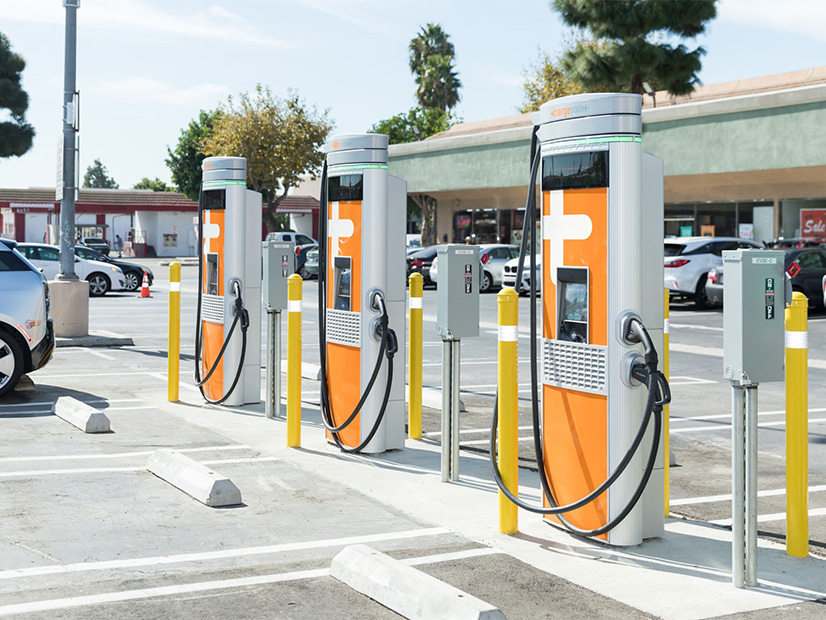The Biden administration said Tuesday it has approved electric vehicle charging plans for all 50 states, D.C. and Puerto Rico, opening the spigot on $1.5 billion to add chargers over 75,000 miles of highway nationwide.
The $1.5 billion in funding for fiscal years 2022 and 2023 is a down payment on the $5 billion in National Electric Vehicle Infrastructure (NEVI) program funding authorized over five years under the Infrastructure Investment and Jobs Act. Earlier this month, the administration announced it had approved EV infrastructure deployment plans for 35 states and $900 million in IIJA funding. (See FHWA Beats Sept. 30 Deadline for Approving States’ EV Charging Plans.)
For this initial round of funding, states were required to identify “alternative fueling corridors” — major state and interstate highways — where EV charging stations could be located every 50 miles. EVs can fully recharge in about an hour using the fast-charger ports now available.
The IIJA allowed state transportation officials to begin staffing and activities directly related to the development of their charging plans before they were approved.
In addition to reimbursing them for those costs, the federal funding can be spent on a variety of related activities, including upgrading and adding EV charging infrastructure; operation and maintenance costs of charging stations; stakeholder engagement; workforce development; data sharing; and mapping analysis.
The formula used for the allocations is based on states’ gasoline and diesel tax payments into the federal Highway Trust Fund. Ten percent of the NEVI funding will be subject to the discretion of the secretary of transportation to fill gaps in the national network.
The EV charging funding is only one of the ways the Biden administration — which has set a goal that half of all new vehicles sales be zero-emissions vehicles by 2030 — hopes to spur decarbonize transportation, the nation’s largest source of greenhouse gas emissions.
The Department of Energy has $7 billion in funding to help develop a domestic EV battery supply chain. The recently approved Inflation Reduction Act will provide tax credits to purchasers of new and used EVs and $3 billion for expanding EV charging in economically disadvantaged communities.
But the expansion of the charging network may be choppy, as some states have warned federal officials that a lack of grid capacity may slow their plans.




